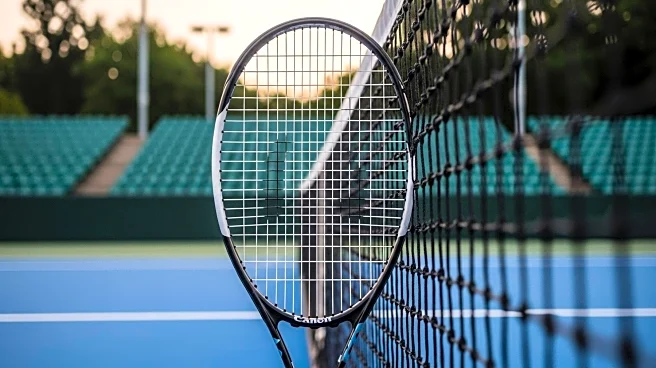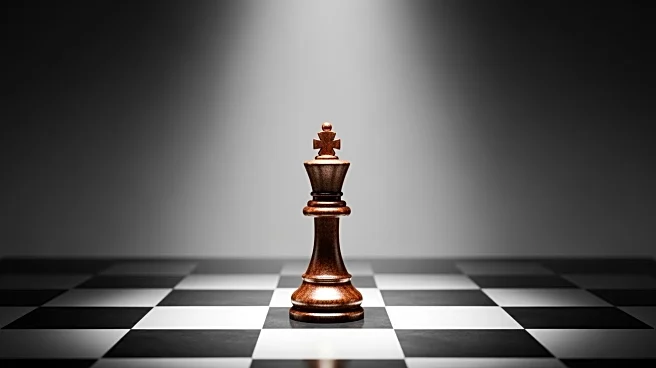What's Happening?
Stefanos Tsitsipas expressed frustration over his opponent Daniel Altmaier's use of the underarm serve during their match at the US Open. Tsitsipas, who was defeated by Altmaier in a grueling four-hour and 26-minute contest, confronted Altmaier post-match, suggesting that the tactic was disrespectful. The match ended with Tsitsipas losing 7-6 (5), 1-6, 4-6, 6-3, 7-5, marking the first time since 2017 that he has not reached the third round of a Grand Slam. Tsitsipas, who has been struggling with form and recently changed his coaching team, received a warning for coaching during the match, a first since the International Tennis Federation allowed limited coaching under new rules.
Why It's Important?
The incident highlights ongoing debates in tennis regarding sportsmanship and the use of unconventional tactics like the underarm serve. Tsitsipas's reaction underscores the pressure and emotional intensity players face during high-stakes matches. His defeat and subsequent comments may impact his reputation and ranking, as he has not won consecutive matches since April. The match also reflects broader tensions at the US Open, which has seen controversies including a racism row and a photographer's mistake during another match. These events may influence discussions on player conduct and tournament regulations.
What's Next?
Tsitsipas will need to reassess his strategy and coaching approach as he aims to recover his form and improve his ranking. The US Open will continue to address player conduct and the implications of new coaching rules. Altmaier's victory may boost his confidence and visibility in the tennis world. Stakeholders, including players and officials, may engage in further discussions on the appropriateness of tactics like the underarm serve and the impact of coaching during matches.
Beyond the Headlines
The incident raises questions about the evolving nature of tennis tactics and the balance between innovation and tradition. The use of the underarm serve, while legal, challenges conventional norms and may lead to discussions on its place in professional tennis. Tsitsipas's comments reflect the emotional strain athletes face, highlighting the need for mental health support in sports. The broader controversies at the US Open may prompt reviews of tournament policies and player interactions.









